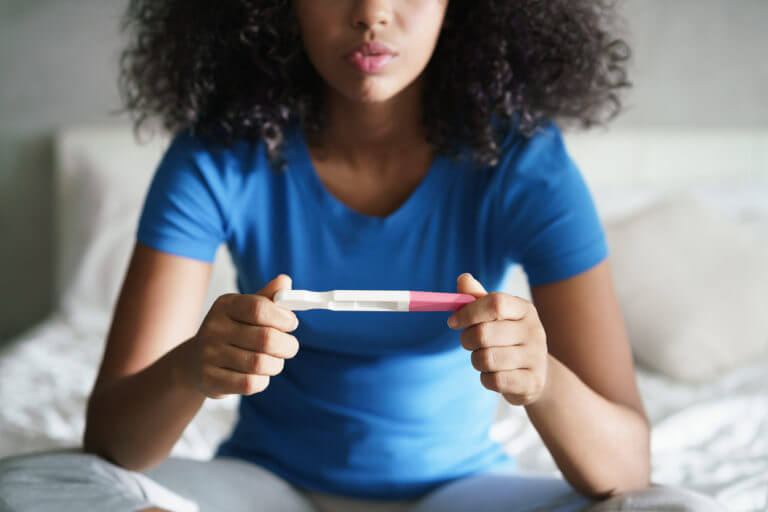
One of the first things women do when they suspect they may be pregnant is take a pregnancy test. They are readily available at any grocery or drug store – and even some gas stations carry them! You may be wondering how a pregnancy test works. Read on to learn more.
The Pregnancy Test
While they may come in different colors and sizes, a pregnancy test generally comes in the form a long-handled stick. To take it, you need to pass your urine on top of it. Most women simply urinate on it while on the toilet. While there is no bad time of the day to take a pregnancy test, the most effective results come from a test taken first thing in the morning.
Pregnancy tests work to detect the pregnancy hormone called human chorionic gonadotrophin (hCG), which the female body begins to produce less than a week after conception. The hormone is produced by the placenta after the embryo latches itself to the uterine lining. As your pregnancy progresses, your body produces more and more hCG. The pregnancy test is designed to detect the presence of hCG in your urine. The moment your urine comes in contact with the strip, it will produce a reaction that indicates whether there is the presence of hCG in your urine.
Pregnancy tests require you to wait for a few minutes before the results are displayed. Make sure to read the instructions of the pregnancy test carefully before taking it. Many pregnancy tests display the results in different ways.
Are Pregnancy Tests Accurate?
Home pregnancy tests boast 99 percent accuracy, but factually, they are about 97 percent accurate. However, not all pregnancy tests are created equal. For instance, there are pregnancy tests that can confirm pregnancy as soon as a few days after conception, while some require a stronger hCG presence to indicate pregnancy. Due to this, generally speaking, a positive pregnancy result is more likely to be reliable than a negative pregnancy result. False-positives are rarer compared to false-negatives. Factors such as taking fertility drugs or problems with ovarian health can affect the accuracy of your pregnancy test results.
If you suspect you may be pregnant or are experiencing symptoms of pregnancy, you may want to try testing a few times. If you want the most accurate results, it is best to visit a gynecologist. Gynecologists can perform a blood pregnancy test, which will give you accurate results. A blood test to check for pregnancy can only be done in a doctor’s office.
Comprehensive OB/GYN Services in Syracuse, New York
If you suspect that you may be pregnant and want to get tested, the doctors at University OB/GYN Associates can help. We will be with you every step of the way. We have obstetricians and gynecologists who deeply care about your health and can treat any women’s health need you may have, including complications with fertility or pregnancy.
To learn more about our OB/GYN services or to schedule a consultation, call (315) 464-5162. We look forward to serving you!



